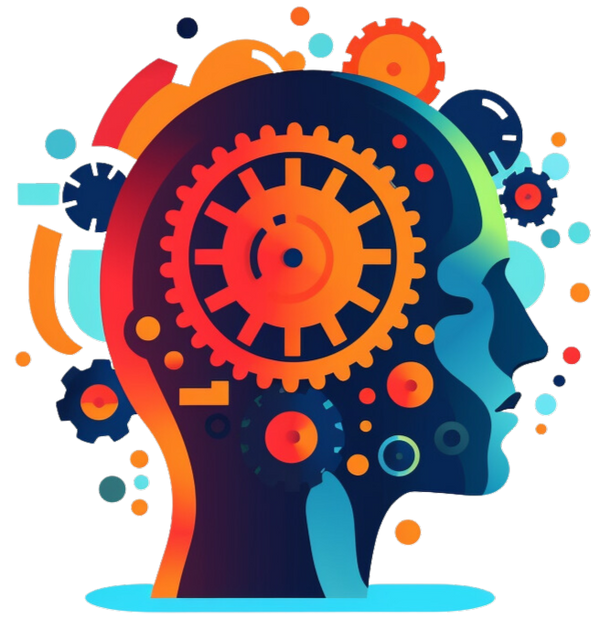
ADHD in adults: The constant companion
Share
Adults can also be affected by attention deficit/hyperactivity disorder (ADHD), which first appears in childhood or adolescence. The later the diagnosis, the longer the suffering often is.
Yes, Bill Gates and Richard Branson have been diagnosed with ADHD. Johnny Depp and Will Smith too. Indeed, many people with ADHD so-called "get through life well"—or even become some of the world's great transformers. Others, particularly those severely affected, often fail so miserably at their challenges that they ultimately break down.
The following facts are also disturbing when you consider the life changes that can result:
- People with ADHD – children, adolescents, adults – all too often struggle with a life full of restlessness, uneven attention and impulsivity
- Over 80% of adults with ADHD suffer from a comorbid mental illness, e.g. depression or anxiety disorder, 60% even suffer from several
- Approximately 20 to 60 percent of children with ADHD have learning disabilities. The disorder affects reading, math, or writing, and most have problems in school.
- Substance abuse is twice as common among people with ADHD as in the general population (i.e. drugs, the worst of which, as always, is alcohol)
- Girls and women with ADHD are significantly more likely to experience unwanted pregnancy. Sexually transmitted diseases are also more common.
- The risk of being involved in a road traffic accident is three times higher for children with ADHD than for children without attention deficit or hyperactivity disorder
- Adults with ADHD tend to have lower levels of education, experience more job changes, commit more criminal offenses, and experience more separations/divorces. They visit doctors ten times more often and have significantly more car accidents.
- In prisons, the rate of ADHD sufferers is approximately 20%
- ADHD children experience rejection/criticism from their environment about 20 times more often than neurotypical children
- The risk of developing dementia is up to 3 times higher in people with ADHD compared to those without

How is ADHD diagnosed in adults?
Medical science has developed specific criteria for diagnosing ADHD in adults. These include varying degrees of difficulty concentrating, hyperactivity, and impulsive behavior. Approximately 15% of children and adolescents who exhibit ADHD symptoms also meet these criteria in adulthood. In adults, ADHD often manifests differently, with hyperactivity diminishing and problems such as difficulty concentrating, inner restlessness, and emotional dysregulation becoming more prominent.
It's not uncommon for ADHD to be diagnosed in adulthood. Adults with ADHD often face challenges in finding appropriate support, as the disorder has traditionally been viewed as a childhood problem—and consequently, fewer support services exist for adults .

How does ADHD manifest itself in adults?
ADHD is less noticeable in adults than in hyperactive children. Common difficulties include problems organizing daily life or work, difficulty concentrating, or meeting deadlines.
Adults with ADHD also tend to be impulsive. For example, they may talk excessively and regularly interrupt others. Some may show anger quickly, end relationships hastily, change jobs abruptly, or quit rashly without considering other opportunities.
Problems such as reckless driving can also occur in road traffic.
Adults with ADHD often struggle to control their emotions. They tend to be irritable and have a low frustration tolerance. In stressful situations, they have difficulty fulfilling their obligations. However, under extreme, existential stress, they can also "function like clockwork" (dopamine and adrenaline are in excess). Setting and achieving goals can also be challenging.
It is crucial to seek professional advice for persistent mental health problems that affect quality of life. A careful diagnosis of ADHD is important to avoid unnecessary or inappropriate treatment.

When is ADHD diagnosed in adults?
The criteria for diagnosing ADHD in adults are essentially the same as in children.
A diagnosis is made when:
• Symptoms were already present in childhood
• at least six indicators of inattention, hyperactivity or impulsivity are present
• Problems exist in more than one area of life
• social or professional life is severely impaired.
Some adults who were not diagnosed in childhood can be retrospectively diagnosed using (among other methods) special questionnaires, such as the Wender-Utah Rating Scale . A comprehensive diagnosis, including interviews and questionnaires, is always a prerequisite for prescribing medication.
It is also important to rule out other mental disorders that could cause similar symptoms. ADHD is sometimes confused with personality disorders such as borderline personality disorder or bipolar disorder.
Many people with ADHD also suffer from comorbidities such as social behavior disorders, depression, tic disorders, or anxiety. These can sometimes be a consequence of untreated ADHD.
Many adults with ADHD also report low self-esteem, and some become dependent on alcohol or other drugs . Stimulants, in particular, are sometimes used to cope with or alleviate ADHD symptoms because they are closely related to ADHD medications.

How do adults deal with ADHD?
Adults with ADHD often develop their own strategies to cope with the challenges, such as:
• Exact daily planning and creating reminder lists
• Dividing tasks into smaller steps
• Placing reminders at strategic locations
• Note down all important appointments and tasks in a notebook or in your mobile phone calendar
• Establish routines and consistent storage locations for important items.
Because ADHD symptoms vary greatly from person to person, it's difficult to give general advice . However, many sufferers find what works for them over time, and support from friends and family is valuable. (Note: Never accept it if your partner, parents, etc., refuses to acknowledge ADHD and discuss it. Contact an ADHD counseling center or seek mediation/couples counseling on the topic .)
Adults with ADHD, however, also seek—and find—jobs and relationships that perfectly match their typical strengths—such as openness, enthusiasm, divergent/networked thinking, creativity, and high flexibility. Order and structure, on the other hand, often remain a lifelong issue. However, they can be more than compensated for by the aforementioned major strengths—especially in today's world characterized by rapid change and unpredictability.
- Care
- Media & Journalism
- service
- Research
- Design (e.g. interior designer)
- Professions with a high level of physical activity (e.g. gardeners, fitness trainers, top athletes)
Contact points for adults with ADHD
Adults with ADHD should generally consult a specialist in psychiatry, psychosomatic medicine, or neurology, as well as a medical or psychological psychotherapist. Young adults should seek a new doctor well in advance of reaching adulthood, as it can take some time to get an appointment. In some cases, treatment with a child and adolescent psychiatrist or therapist is possible up to the age of 21. In Switzerland, elpos and ADHS 20+ are ideal contact points for adults with ADHD or suspected ADHD.

Openness about the diagnosis
The decision to tell others about a diagnosis is complex and personal. While close friends and family are often informed, the situation in the workplace is different. Many people keep their diagnosis private out of fear of job loss, discrimination, uncertainty about their rights, or because they consider their neurodiversity private. On the other hand, being open about the diagnosis can be psychologically relieving and promote support and understanding in the workplace.
Since the situation varies depending on your personal circumstances, there is no one-size-fits-all answer to the question of who should be told about the diagnosis. Counseling with doctors or psychotherapists can be helpful. In larger companies, confidential counseling with the employee representative or personnel committee may also be an option.

